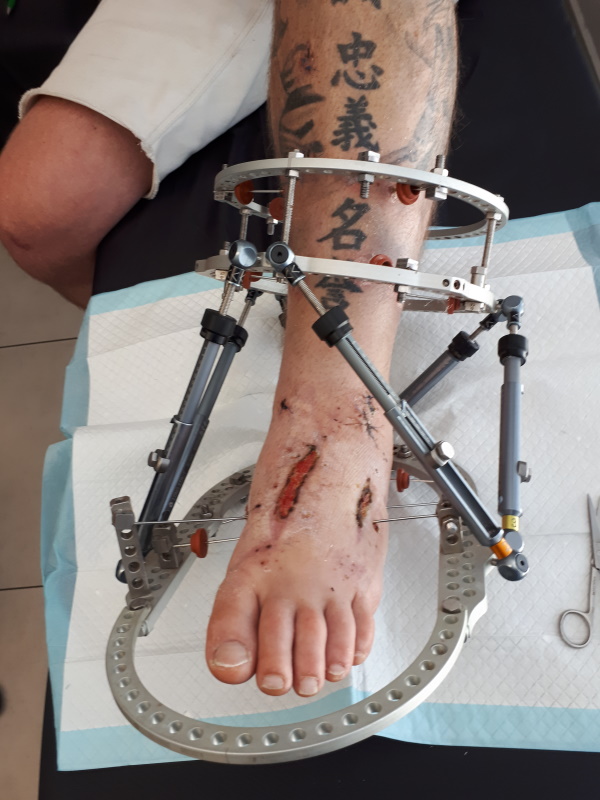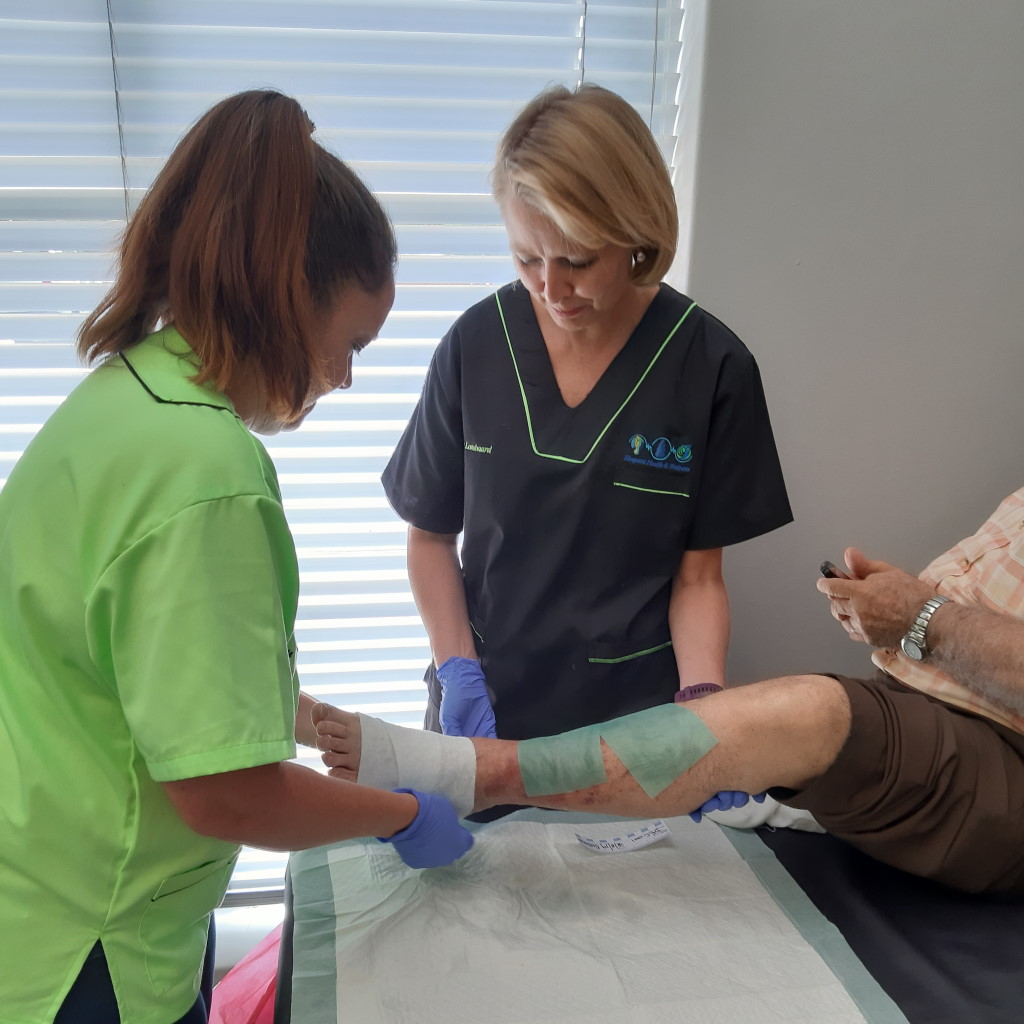
Advanced Wound Management
We provide specialised wound care for a wide variety of conditions and complicated wounds, with a keen interest in diabetic and vascular ulcers.
Why use the services of an Advanced Wound Care Practitioner?
An Advanced Wound Care Practitioner (AWCP) is a Health Care Professional (HCP) registered with the relevant bodies such as HPCSA or SANC actively working in the field of wound care. An AWCP has post graduate qualifications within the field of wound care.
Apart from the normal day-to-day wound management activities, an AWCP also actively contributes towards research and product evaluations within the wound care environment.
Our team members are:
- Registered as Health Care Professional with HPCSA or SANC
- Active members of the Wound Healing Association of Southern Africa (WHASA)
- Registered with the Board of Health Care Funders (BHF)
- Practicing as a Wound Care Practitioner for longer than 5 years
- Continiously involved with CPD accredited wound care activities
- Recognised as AWCPs by Eloquent Learning Health
- Actively involved with clinical training in wound care
We acknowledge the advances that technology brings, but we recognise that personal touch makes the biggest difference - that is what we are passionate about.
In the words of Hunter "Patch" Adams: “You treat a disease, you win, you lose. You treat a person, I guarantee you, you'll win, no matter what the outcome.”
Typical wounds treatedat our centre
- Diabetic Foot ulcers
- Arterial / venous leg ulcers
- Pressure injuries / ulcers
- Complicated / non-healing / infected wounds
- Chronic wounds
- Lacerations, skin tears and abrasions
- Burn wounds
- Post-operative / surgical wounds
Wound Identification
By identifying the cause of the wound and contributing factors, treatment can be optimised.
- Diabetic foot ulcer
- Leg ulcers (arterial, venous, mixed, other)
- Pressure injuries / ulcer
- Complicated wounds (chronic, non-healing, infected & malignant)
- Lacerations, skin tears and abrasions
- Burn wounds
- Post-operative / surgical wounds
The diabetic foot in itself is very complex and with diabetic patients a team approach is essential to manage blood sugar levels and other related pathologies. The focus of the centre is limb salvage and to safe the patient’s foot. Wound management is aimed at improving the patient’s quality of life.
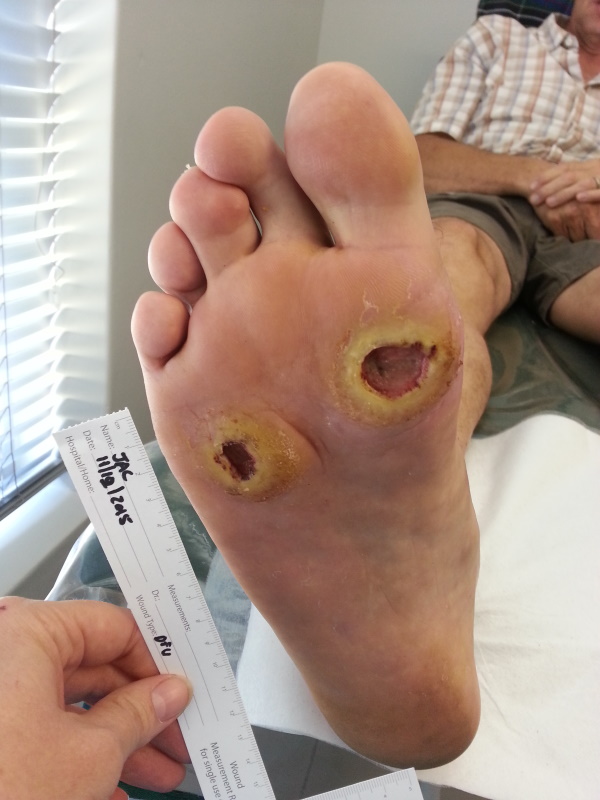
Venous Leg Ulcers (Also known as Varicose Vein Ulcers)
Once it is determined through the vascular examination that you do have a venous ulcer an individualised treatment plan is started. The gold standard is implemented by starting treatment with multi layer compression bandages. Depending on the size of the wound and the possibility of infection dressing changes are adapted to the patient's own individual needs. Infected wounds are often first treated 2-3 times per week until the infection is resolved, there after bandages are done once a week. Once the wound is healed the patient will be issued compression stockings which will need to be replaced every 6 months. 70% of all lower leg ulcers worldwide are venous leg ulcers and classic symptoms include:
- A history of varicose veins
- A history of oedematous (Swollen) legs which worsen as the day progresses. Once the legs are elevated the oedema decreases with the aid of gravity.
- Dark skin discolouration at the gait area (the area above the ankle below the calf). This is also called lipodermatosklerosis
- Non-healing large ulcers that are very wet and diffuse in shape
- Patient has bounding pulses with good capillary refill
Arterial Ulcers
If there is no blood flow the wound will not heal. Referral to a Vascular Surgeon in order to address and improve the arterial insufficiency is therefore an essential part in the treatment process. Once the arterial insufficiency is addressed wound healing can occur.
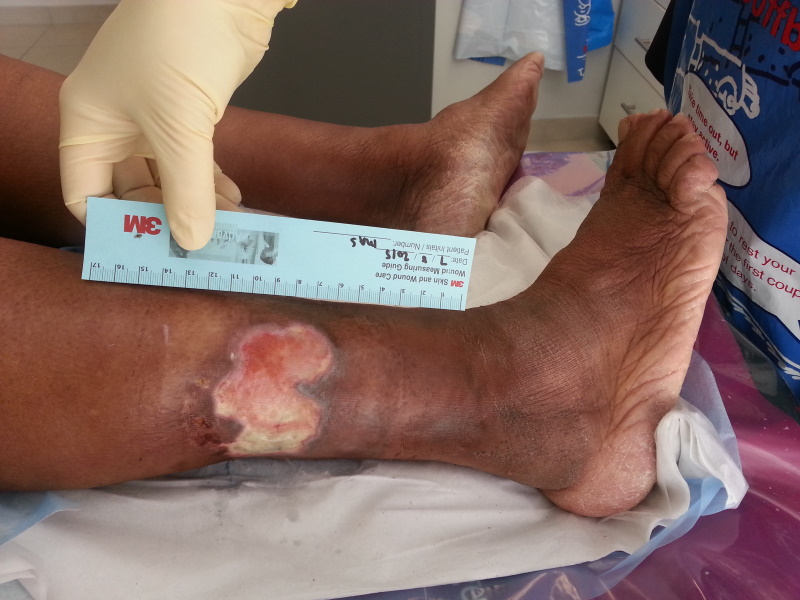
A pressure injury is defined as “localized damage to the skin and/or underlying soft tissue usually over a bony prominence or related to a medical or other device. The injury can present as intact skin or an open ulcer and may be painful.
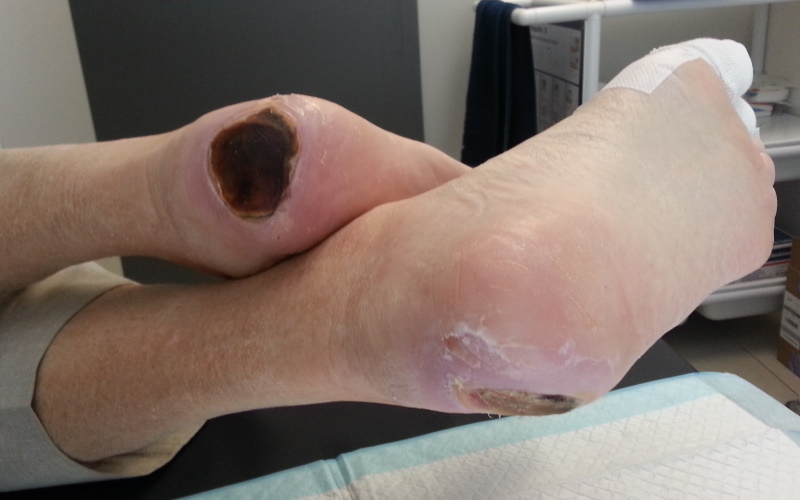
These type of wounds are any wounds that does not follow the normal pathway of healing. This can be due to various factors such as Diabetes, Arterial insufficiency, Cancer, Immune disorders, skin disorders and many more. Goal of treatment is to first determine the cause by working together as a multi-disciplinary team. Holistic wound management forms the basis of all wound management.

Abrasions
An abrasion occurs when your skin rubs or scrapes against a rough or hard surface. Road rash is an example of an abrasion.
Lacerations
A laceration is a deep cut or tearing of your skin. Accidents with knives, tools, and machinery are frequent causes of lacerations. In the case of deep lacerations, bleeding can be rapid and extensive.
Skin tears
A skin tear is a wound that happens when the layers of skin separate or peel back. They can happen as a result of bumping something, dressing changes, or washing or drying the skin harshly. They most often happen on the arms or legs
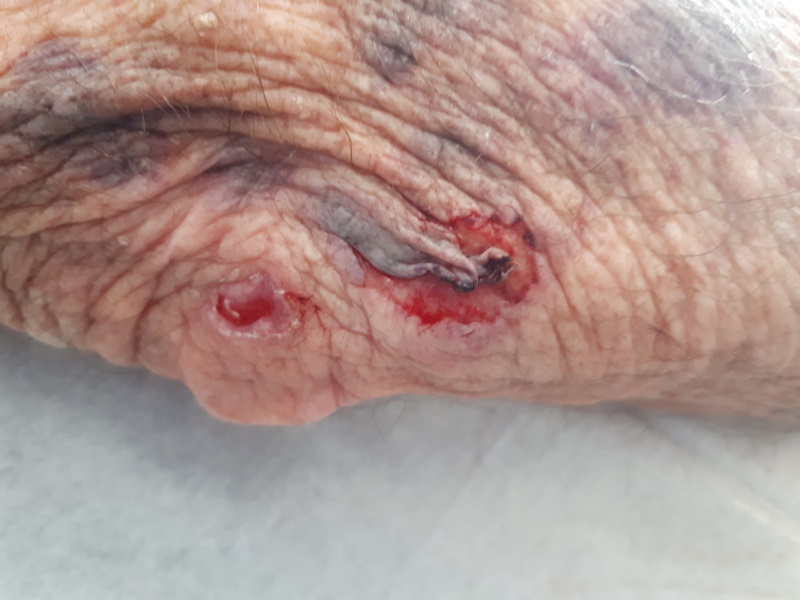
When caring for patients with burn wounds it is important to remember that many factors
impact on the care that we are able to deliver. This is of particular relevance in the area of wound care. At our Centre we aim to promote moist wound healing enabling faster closure of the wound with new epithelial cells. Advanced wound care products such as bio-engineered tissue is used in severe cases. Essential in burn wound management is the after care in scar management where we utilize advanced products to prevent excessive scaring.
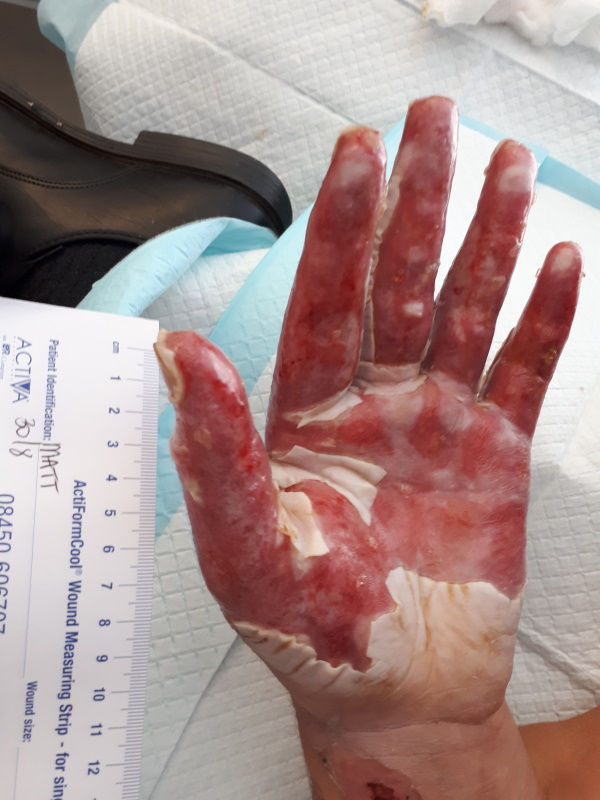
A surgical wound is a cut or incision in the skin that is usually made by a scalpel during surgery. A surgical wound can also be the result of a drain placed during surgery. Surgical wounds vary greatly in size. They are usually closed with sutures, but are sometimes left open to heal.
Surgical wounds can dehisce post-opratively and needs specialised care.
